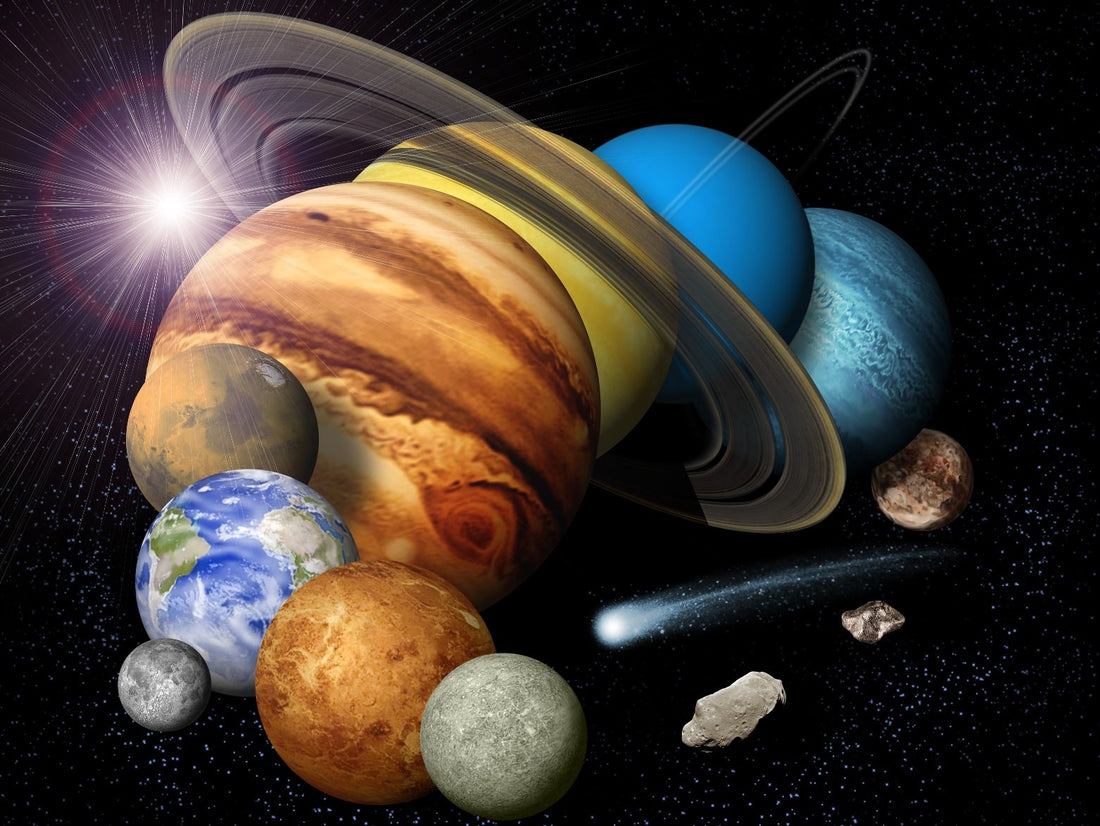
What's The Densest Object In The Solar System?
Share
We're well and truly into the belly of self-isolation so what better a time than to open up wide and: Ask ARSE!
This one comes from a fan within the inner sanctum of our Australian Space Society Facebook group who asked:
"Been trying to homeschool my daughter (12) with some NASA free stuff on the planets in the solar system and looking into the atmosphere and compositions of them all. We were trying to figure out the density of them all in a course question but got embarrassed when I couldn't explain it to the daughter.
Question was which is the densest object in our solar system." - from Brett.
Thanks for reaching out mate and that is a bit of a difficult one with some math involved.
Before we learn what density is, let's get rid of some misconceptions and determine what it is not.

You might be thinking "okay, gravity is a big player in density.", after all, gravity as a process continues to build on itself over and in an exponential equation.
This means the largest objects in the solar system - Jupiter, Saturn, our Sun - would be the densest objects and yet, this is not correct.
They are actually less than a quarter of Earth's density, despite their considerable size. The composition of these large giants is mostly gas, meaning they're far too fluffy to be dense.
If size was all that mattered, then Venus and Mars would be denser than Mercury since both of those planets are larger than our tiny innermost planet.
Which leads us to our next misconception of composition.
Perhaps you think that the objects with the heavest metals and elements are sure to have a higher density. When in fact, they do not.
Surprisingly for astronomers, Mercury may be small but is also the second densest object in the solar system thanks to its 70% metal composition - meaning by this logic it should be the densest however this is not true.
So, if the density is not size and it is not composition, what is it?

What is Density?
Density is actually quite simple.
It's not the mass of a planet or object, nor is it the amount of space said object occupies.
It is the result of how these two properties relate to one another.
Or to put it even more concise: density is the ratio of these two properties calculated by the mass of an object divided by its volume.
The measuring stick for comparing object density is Earth, pretty convenient wouldn't you agree?
So if an object is 2x below Earth density it is most likely going to be rocky and hardened in composition with a greater overall mass, However, this composition also means the planet must be quite small.
On top of this tiny rocky shell, you might get a large casing of gas which will form a gas giant like Saturn which is the least dense planet in our solar system.
If this planet is too close to the sun it will have all its gas stripped away and reveal the tiny core planet beneath like Mercury.
Seeing a pattern here?
So the densest objects aren't the largest or the hardest as either of these means that the majority of bulk is a collection of gas casing rather than actual mass.
Therefore the densest object in the solar system must be a balance of hardness and size.
Therefore...
The Densest Object In The Solar System Is...

There's a reason we use our home as the base point for measuring the density of objects in space.
It is the perfect midpoint for measurement and represents the harmony of size and composition.
Earth is indeed the densest astronomical body in our solar system. With a density of 5.5 grams per cubic centimetre (in order words, 5.5 times the density of water), it beats out all of the other planets as well as the moons, asteroids, comets, and even the Sun.
Putting it plainly, we are the biggest solid 'world'.
The compressive forces of gravity on our core form a dense centre and compress everything layer over layer again and again. The more added weight to our composition the greater the gravity equation packs on. While we have a gaseous atmosphere, it is much smaller than the gas giant or even Uranus and Neptune.
Our tightly packed core and relatively small atmosphere forms the perfect environment for density.
Thanks again Brett and keep thrusting into the deep unknown as we spread ARSE far and wide!
Keen to show off your love for ARSE?




